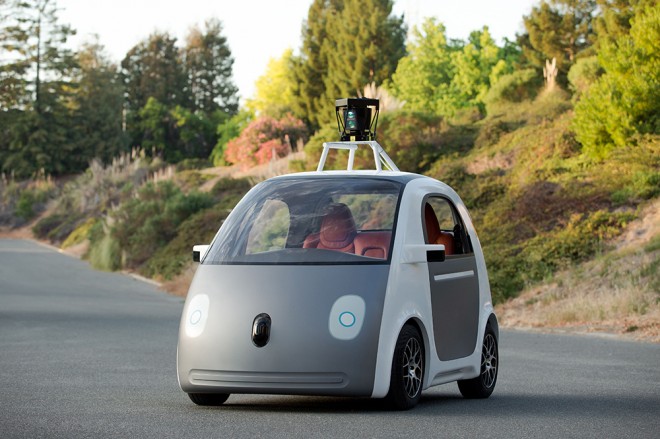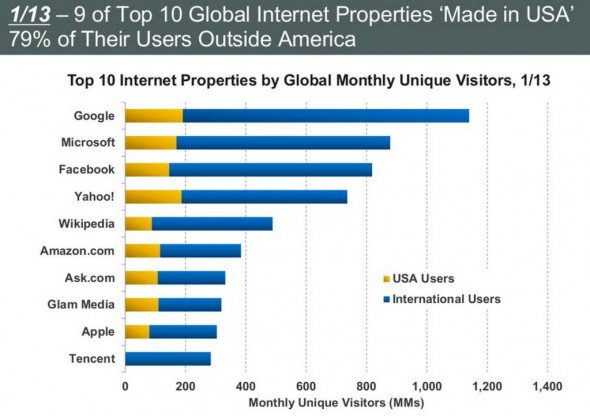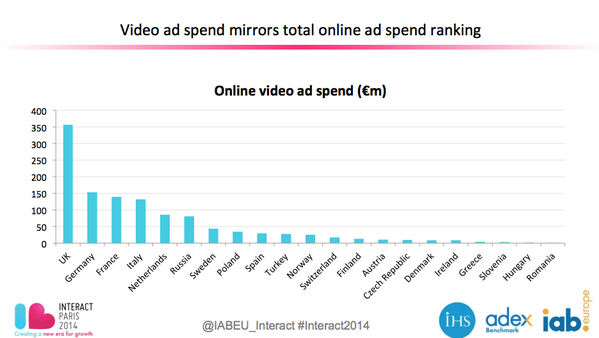Archive for mai, 2014
+1
vineri, mai 30th, 2014Pentru Google, construirea de la zero a masinii care se conduce singura va impinge toata industria auto sa inoveze.
Piata scade, pietrele raman
miercuri, mai 28th, 2014În 2013, companiile au cheltuit circa 24 de milioane de euro pentru a-?i face reclam? prin intermediul Google ?i Facebook, iar pentru anul acesta se estimeaz? o cre?tere de 25%, în timp ce bugetele alocate pentru publisherii locali din mediul online s-au situat la 22 de milioane de euro, urmând ca acestea s? scad? cu 10% în 2014, conform calculelor ZF bazate pe datele furnizate de Initiative Media în studiul Media Fact Book pe 2014.
„În ceea ce prive?te bugetele investite în zona digital?, valoarea acestora a crescut cu 12% în 2013, ajungându-se la 46,2 milioane de euro. Este un trend de cre?tere care se men?ine de câ?iva ani, din 2011 digitalul fiind al doilea mediu în mixul de comunicare în pia?a local?“, a spus Raluca Mateescu, integrated and digital media director în cadrul agen?iei BPN, parte a grupului Interpublic care include ?i Initiative Media.
„Zona de display (publisheri locali cu con?inut premium – n. red.) a fost constant? în 2013 comparativ cu 2012, acesta fiind primul an în care nu s-a înregistrat o cre?tere pe acest segment. Astfel, zona de display a avut anul trecut o pondere de 48% în totalul bugetelor alocate publicit??ii în mediul online. Ponderi în cre?tere (din bugetele de publicitate – n. red.) au primit platformele de pay per click – agen?iile media au început s? î?i doreasc? mai mult s? intre în zona aceasta, iar Google, Facebook ?i Yahoo acumuleaz? bugete tot mai mari de aici“, a explicat ea.
De aici, articol sub paywall
Tweeturile diminetii
miercuri, mai 28th, 2014
With Google Car, have we entered the Wall-e future? I suspect we have. What do you think?
— Om Malik (@om) May 28, 2014
2 kinds of people: Those who watch Pixar movies and *don't* think, "I wonder how to make this real." And Sergey Brin. pic.twitter.com/3OcSJK8pY9
— Aaron Levie (@levie) May 28, 2014
1 cu 4
miercuri, mai 21st, 2014Desi nu sunt de acord cu (tot) ce a scris Catalin Tolontan astazi, am retinut ca:
Prima c?dere a fost din print în online. A doua va fi din online în google. Calculele arat? astfel. Iei 40.000 de euro pe lun? din publicitatea online, ceea ce se întîmpl? unui num?r mic de redac?ii. În schimb, din google încasezi 10.000 pe lun?. Simbolic calculînd, pentru fiecare patru euro pierdu?i din publicitatea de agen?ii prime?ti o compensa?ie de un euro adus de google. Este exemplul unor publica?ii de talie mare.
Trebuie remarcat ca gsp.ro este un site plin de coduri Google, implicit de reclame furnizate de Google. Intregul post, care face parte dintr-un „serial” de trei, il gasiti aici.
Ultimii
miercuri, mai 21st, 2014Dar si cu cel mai mare potential de crestere :)
Altfel, toata piata de online advertising in Europa a totalizat 27.3 miliarde Euro, in crestere cu 11.9%. Not bad.
Cinci despre ICEEfest
marți, mai 20th, 2014Le gasiti la Dragos, eu am selectat una despre evenimentul care aduce la Bucuresti toti playerii importanti din online:
IV. PERFORMANCE si eCOMMERCE. Daca as fi “in linia intai”, acolo unde fiecare click ar trebui sa insemne o vanzare, ceva… adica daca as fi client care are si componenta de vanzari online sau agentie de performance marketing atunci sigur as vrea sa vad prezentarile lui Lee Odden – atentie la acest speaker, zic! – si nu as rata deloc Performance Marketing Masterclass din ziua 1 (cu Google, Facebook, TopRank si altii) dar nici workshopul si prezentarile Facebook sau momentul lui Oren Hefetz de la Google. O mentiune speciala pentru prezentarea Dynamo din ziua 2 – o companie care combina PR-ul cu SEO writing si generarea de vanzari.
The New York Times Innovation Report
vineri, mai 16th, 2014In the coming years The New York Times needs to accelerate this transition from a newspaper that also produces a rich and impressive digital report to a digital publication that also produces a rich and impressive newspaper. This is not a matter of semantics. It is a critical difficult and at times painful transformation that will require us to rethink much what we do every day.
Our leaders know this and we have taken steps in these directions. But it has become increasingly clear that we are not moving with enough urgency. This may be the single most important long-term challenge facing the newsroom and its leaders.
There are factors that, understandably, slow this tricky transition. More than three quarters of our advertising and subscription revenue still comes from the newspaper, and most of our employees have spent their careers building skills to succeed in print. But the huge majority of our readers are digital, and this represents our single biggest opportunity for growth.
As a business, this is an extremely difficult balancing act. It is just as tricky for the newsroom. The experience of putting out the newspaper informs almost every element of how we do our jobs, from the people we hire to how they work to what they produce. These assumptions — based on the newspaper’s fixed dimensions and hard deadlines — are so baked into our days that it is easy to overlook their artificial limitations or the new possibilities we could embrace.
De aici
Tweetul diminetii
vineri, mai 16th, 2014
Quote of the day from ex-Googler in San Francisco: Google plus is the Bing of social media. Ouch!
— Lionel Barber (@lionelbarber) May 15, 2014
Zece de la Martin Sorrell
marți, mai 13th, 2014Martin Sorrell la congresul IAA, din China:
1. Shift to East, South and South East – meaning a potential shift in power in the world. The USA is still the center, but undeniably power is beginning to move. With a focus still on „BRICS and the next eleven”. WPP sees a G2 world in the future.
2. Overcapacity and shortage of human capital – in key industries such as automotive there is massive capacity, but changing life styles, and aging populations.
3. Rise and rise of the web – 12 years ago WPP’s web business was close to zero and now it is 30%.
4. Growth of retail power – and the changing relationship now between retailers and consumers as populations move to urban areas, with busy two earning families using the e-commerce more and more.
5. Importance of internal communications – data – people talk about „data” and we are now applying more technology to data and its role in our organization’s communications.
6. Global and local structures – WPP sees the rise of Africa – which represents significant opportunities with a dramatic shift in power taking place.
7. Relative power of finance and procurement – the balance of marketing functions and finance is now very much out of balance, and this needs to be addressed – in all parts of the world. Not just the western economies.
8. Growth of government – WPP has government clients in almost every country. They are more significant players than ever. In some parts of the world, such as China, there is also an element of „Government run capitalism”.
9. The acceptance of social responsibility – the issue and attention towards sustainability is considerable now. And for companies to „do good” is still „good” for business.
10. Industry consolidation – this was a big news day with the announcement that the Publicis Groupe and Omnicom Group merger is not proceeding.




